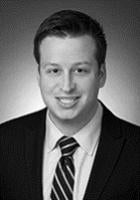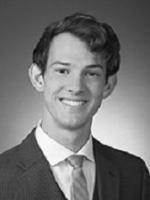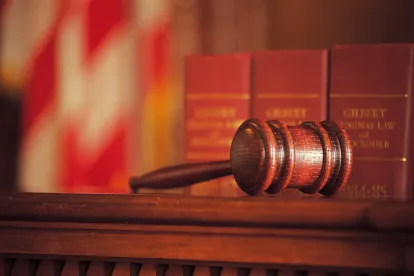Statistical sampling is always a hot topic in False Claims Act (FCA) litigation. Courts have allowed statistical extrapolation from samples of claims to determine damages in cases where FCA liability was already established.[1] But courts are reluctant to allow the use of sampling for determining liability in the first instance.[2] Since the FCA’s monetary penalty per “violation” has been held to apply to each individual claim submitted for reimbursement, it seems only natural that relators and the government be required to prove the FCA’s various elements for each individual claim.[3] But, in a series of recent rulings, some district courts have acquiesced to – or at least been open to – the idea of using statistical sampling to establish liability.[4] Other courts have rejected statistical sampling to prove liability, especially when all the claims alleged to contain falsehoods remain available for a full review.[5]
Despite this widespread and urgent disagreement, no federal appellate court has had the opportunity to consider the issue squarely, until Tuesday. Unfortunately, the Court of Appeals for the Fourth Circuit passed on the opportunity to provide clarity to an issue that has split many district courts.
The case, United States ex rel. Michaels v. Agape Senior Community, Inc., reached the Fourth Circuit after the district court actively encouraged the relator to file an interlocutory appeal of an earlier ruling against statistical extrapolation.[6] As the Fourth Circuit explained on Tuesday, interlocutory appeals are rarely granted on evidentiary questions, the resolution of which is normally left to the discretion of the district court.[7] And to be sure, the district court in Michaels stated that it had ruled on the relators’ proposed expert witness testimony on sampling as “a pure question of law.”[8] But the district court also ruled that “some cases are suited for statistical sampling and, indeed, in many cases that method is the only way that damages may be proved,” but that the case before it was “not such a case.”[9] (emphasis added). The Fourth Circuit honed in on this language, citing it as an admission that “the use of statistical sampling evidence can sometimes be permissible, but is not appropriate here based on the particular facts and evidence in this case.”[10] (emphasis added). The Fourth Circuit therefore framed the issue as whether “statistical sampling is conducted in a scientifically proven and accepted manner pursuant to the Supreme Court’s ruling in Daubert v. Merrell Dow Pharmaceuticals, Inc., 509 U.S. 579 (1993).”[11]
Having found that the question before it was really one of evidentiary discretion and not of law, the Fourth Circuit dismissed the sampling portion of the appeal as improvidently granted. By casting the statistical sampling question as one of evidence, the Court of Appeals thus avoided ruling on whether, as a matter of law, liability under the FCA can be established using statistical sampling.
This ruling is therefore a mixed bag for defendants. On one hand, the district court’s ruling in Michaels remains in place and is favorable to defendants because it allowed the trial court’s ruling against statistical sampling to stand, for now. On the other hand, the lack of a clear rule as to whether liability can be established using statistical sampling means the varying rulings from the district courts are likely to continue. This uncertainty leaves providers subject to costly litigation not only on whether they submitted false claims, but on what methods relators may use to prove the existence of false claims. We will continue to follow this important area of FCA law as it develops.
[1] See United States v. Cabrera-Diaz, 106 F. Supp. 2d 234 (D.P.R. 2000) (involving default judgment against defendants), United States v. Rogan, 517 F. 3d 449 (7th Cir. 2008) (allowing “[s]tatistical analysis” of claims considered “false” due to underlying scheme violating Anti-Kickback Statute).
[2] See United States ex rel. Martin v. Life Care Centers of America, Inc., 114 F. Supp. 3d 549, 563–64 (E.D. Tenn. 2014) (collecting and distinguishing cases before independently concluding that FCA permits extrapolation-based liability).
[3] See Brief of American Hospital Association and Catholic Health Association as amici curiae 6, United States ex rel. Michaels v. AGAPE Senior Community, Inc., Nos. 15-2145(L), 15-2147 (4th Cir. 2016), http://www.aha.org/content/16/160324-amicibrief.pdf.
[4] See, e.g., Martin, supra n. 2; U.S. ex rel. Ruckh v. Genoa Healthcare, LLC, No. 8:11–cv–1303–T–23TBM, 2015 WL 1926417 *3 (M.D. Fla. Apr. 28, 2015) (rejecting defendants’ blanket challenge to extrapolation-based liability and reserving judgment on relator’s particular methodology for later Daubert hearing).
[5] See, e.g., United States ex rel. Michaels v. Agape Senior Community, Inc., No. 0:12–3466–JFA, 2015 WL 3903675 *7–*8 (D.S.C. Jul. 6, 2015) (“Michaels I”) (collecting cases on either side and insisting on examination of each individual claim).
[6] Id. at *9 (“The parties are implored to seek permission from the Fourth Circuit Court of Appeals to review these two issues.”). The district court hoped to avoid holding a long and costly trial at the federal government’s insistence, only to have the basis of the relators’ case invalidated on appeal. Id. at *8.
[7] United States ex rel. Michaels v. Agape Senior Community, Inc., No. 15-2145 25–26 (4th Cir. Feb. 14, 2017) (“Michaels II”), http://www.ca4.uscourts.gov/Opinions/Published/152145.P.pdf (citing McFarlin v. Conseco Servs., LLC, 381 F.3d 1251, 1259 (11th Cir. 2004); Bryte v. Am. Household, Inc., 429 F.3d 469, 475 (4th Cir. 2005)).
[8] 2015 WL 3903675 at *6.
[9] Id. at *8.
[10] Michaels II at 26.
[11] Id.




 />i
/>i

